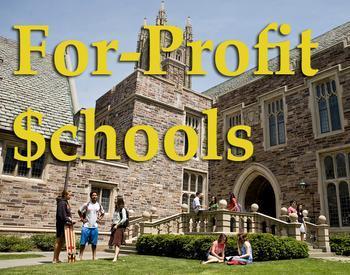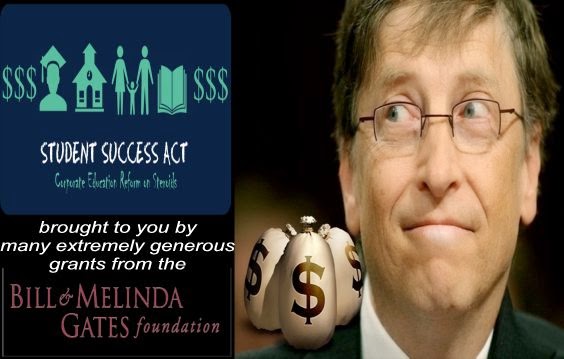Here's Why ESSA Might Direct More Federal Dollars to Private Schools

The Every Student Succeeds Act makes plenty of changes to education policy, including several key ones that provide more control to states. But here's one that's been largely overlooked in discussions about ESSA: the possibility that the law will ultimately enable private schools to obtain more federal aid to K-12 than they have previously.
Here's what we mean: As with the No Child Left Behind Act, ESSA requires that districts provide "equitable services" to certain students in private schools, after consulting with private school officials. This can impact migrant students in private schools, students who are English-language learners, and others. (The delivery of equitable services has been complicated by the growth of school choice programs, according to a recent report from the federal Government Accountability Office.)
A summary of ESSA spending and fiscal rules provided by the Council of Chief State School Officers states that under equitable services requirements, "Expenditures for eligible private school children must be equal, taking into account their number and educational needs, to the expenditures for participating public school children."
So how does ESSA change equitable services for private school students?
• There's a change from NCLB to ESSA in the calculation of how much Title I money districts must distribute to private schools for equitable services. In essence, the share of money that districts must draw on for equitable services money for private schools has grown under ESSA. That GAO analysis on equitable services studied a few districts in four states, and the most amount of money spent on those services for any one district was $35 million in Title I money for about 6,500 private school students in a large, urban Wisconsin district (the district was not identified).
• ESSA creates a new ombudsman at the state level who oversees the distribution of these federal funds by districts to private schools, in order to comply with the equitable services requirement. The state education agency appoints this ombudsman.
• Under ESSA, private schools can ask the ombudsman to have the state provide these services instead of the school district, if these schools can show that the district has not been providing money for equitable services as required.
• This ombudsman must also notify private schools about the amount of federal aid they are entitled to through equitable services.
• There's also a specific change to Title II dollars for teachers and professional development that should be noted. Under NCLB, districts had to provide money for equitable services to private schools only out of Title II dollars spent on professional development. Under ESSA, "there is no specification that the amount spent on equitable services is tied to the amount spent on professional development," according to CCSSO.
 So what does all that mean? The first bulleted item we mentioned above could pretty directly lead to a greater share of public dollars for private schools, said Sheara Krvaric, an attorney with the Federal Education Group, which consults with states and districts on K-12 finance.
So what does all that mean? The first bulleted item we mentioned above could pretty directly lead to a greater share of public dollars for private schools, said Sheara Krvaric, an attorney with the Federal Education Group, which consults with states and districts on K-12 finance.But the ability for private schools to appeal for more funds to new state-level ombudsmen could create a new political dynamic around federal money available for equitable services at private schools. And the changes appear to "put more teeth into the provision of equitable services," Krvaric said.
"Lots of private schools were complaining about this," Krvaric said of the setup under NCLB.
A newsletter from the Council for American Private Education does indicate that the first change we noted, at least, favors private schools:
ESSA includes important provisions championed by the private school community to improve equitable services to private school students and teachers. For example, under Title I, which provides assistance to school districts to help high-need students do well in school, a school district now has to calculate funds for services to private school students based on its total Title I allocation, without excluding certain expenditures for other purposes, which it was allowed to do in the past.
However, Krvaric did note that the exact impact of some of these changes won't be known until the U.S. Department of Education weighs in.
Under NCLB, private schools did have the option of seeking more money for equitable services by appealing directly to the Education Department, she noted.
Don't miss another Politics K-12 post. Sign up here to get news alerts in your email inbox.
Follow us on Twitter at @PoliticsK12. Here's Why ESSA Might Direct More Federal Dollars to Private Schools - Politics K-12 - Education Week:

